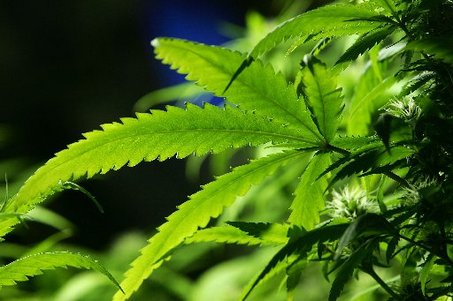Marijuana legalization initiative a statistical dead heat in recent polls

The wild card in November’s election is marijuana. It just depends on who decides to vote. The kind of voters drawn to the polls by Proposition 19, which legalizes marijuana and allows localities to tax and regulate it, may be a determining factor.
Asked at the state Democratic Party convention in April how Democrats can re-energize President Obama voters from 2008, Party Chair John Burton replied: “Pot.” Without arguing the merits of legalization, Burton said the ballot measure “will turn out people.”
The already high-profile proposition would allow cities and counties to adopt ordinances that license and regulate the “cultivation, processing, distribution, transportation and sale” of marijuana. Some estimates say taxing retail sales, which are limited to one ounce to persons 21 years of age or older, could raise as much as $1.4 billion annually.
“There will be national media interest and public curiosity,” said Mark Baldassare, president and chief pollster of the Public Policy Institute of California. “The question is how much the campaigns will work to engage voters,” Baldassare said. “Will the ‘yes’ side seek to mobilize young voters who are more inclined to support legalization? Will the ‘no’ side counter with efforts to get out the vote among older voters less inclined to support legalization?”
The “no” side already includes both candidates for governor, Democrat Jerry Brown and Republican Meg Whitman, U.S. Senators Dianne Feinstein and Barbara Boxer and Boxer’s Republican opponent, Carly Fiorina. San Francisco’s District Attorney, Kamala Harris, Democratic candidate for attorney general, also opposes the initiative – despite being a supporter of medicinal marijuana. Another possible opponent is the California Chamber of Commerce which worries the measure makes it harder for employers to discipline stoned employees, a claim Proposition 19’s backers dispute.
Among Proposition 19’s supporters is the California NAACP whose president, Alice Huffman, portrays legalization as a civil rights issue. “So many of our young people get their start in the criminal justice system over a joint,” said Huffman in announcing the group’s support on June 28.
Despite Burton’s belief the proposition will help turn out younger voters, the state Democratic Party’s executive board voted earlier this month to remain neutral on the ballot measure. Local county committees can make their own choice.
Polls show California voters evenly divided. In April, a Field Poll showed 56 percent of California voters supporting legalizing and taxing marijuana. A May Public Policy Institute poll found 49 percent favored legalization with 48 percent opposed. With a margin of error of less than three points, the results are a dead heat.
Traditionally, ballot measures on hot button issues – parental notification of abortions, gun control, same sex marriage – tend to lose support as the election gets closer so an evenly decided electorate, with just 3 percent undecided, would tend to bode poorly for Proposition 19’s supporters.
Supporters say that’s not the case.
A subsequent poll in late May by the Los Angeles Times and the University of Southern California of 1,506 registered voters found 10 percent undecided, 49 percent favoring legalization and 41 percent opposing. However, one-third of supporters said they favored Proposition 19 only “somewhat.” On June 29, Reuters released a poll of 600 registered voters, which was another statistical dead heat: 50 percent opposed, 48 percent in favor.
The Los Angeles Times poll examined attitudes about legalization among different demographic groups. Age is a significant factor -- and one of the keys to Proposition 19’s strategy. Support for legalization among voters ages 18 to 29 was 61 percent. But 52 percent of voters 65 and older opposed legalization. Support for legalization was 49 percent among voters aged 45 and 64 and 53 percent for those ages 30 through 44.
Men favor legalization, but women are split. Married women rejected Proposition 19, 49 percent to 40 percent in support. The 37 percent of the poll’s respondents who said they had smoked marijuana supported the initiative. Of the 11 percent who said they had smoked marijuana within the last year, the support rate was 81 percent. Those who had never tried pot – 57 percent of respondents – opposed the ballot measure.
Supporters of Proposition 19 are banking on younger voters coming to the polls and occasional, “low-propensity” voters who will cast a ballot simply in favor of legalizing marijuana. The proposition’s backers say they don’t need to mobilize voters, voters are coming to them.
Among its recent announcements, the “yes” campaign noted its number of Facebook friends surpassing 100,000. “This will translate into motivated volunteers, donors, increased voter turnout and 100,000 people spreading the word to their friends and neighbors with a passion and intensity that our opponents will never match,” said Dan Newman, a spokesman for Tax Cannabis 2010. “Our research shows that a large number of occasional voters, particularly younger voters, will show up at the polls specifically to vote for this initiative,” Newman said.
Newman says that support from low-propensity voters is not reflected in polls, which, therefore, underestimate Proposition 19’s popularity. Turnout overall is lower in non-presidential election years, skewing outcomes because a greater number of high propensity voters cast ballots. Those voters tend to be older, white and monied. Young voters are not as reliable as older voters. The number of California 18- to 29-year-old voters casting ballots in midterm elections hovers around 25 percent.
Burton, the state Democratic Party’s chair, counters that the combination of Proposition 19 and Proposition 23, which seeks to suspend AB 32, California’s landmark greenhouse gas reduction law, will be a powerful draw for younger voters who have a higher “green ethos” than older voters.
So far, no polling supports that view.
The last attempt to legalize marijuana was a 1972 ballot measure, also numbered Proposition 19. It was defeated by a 66 percent to 33 percent margin.
* For more information:




